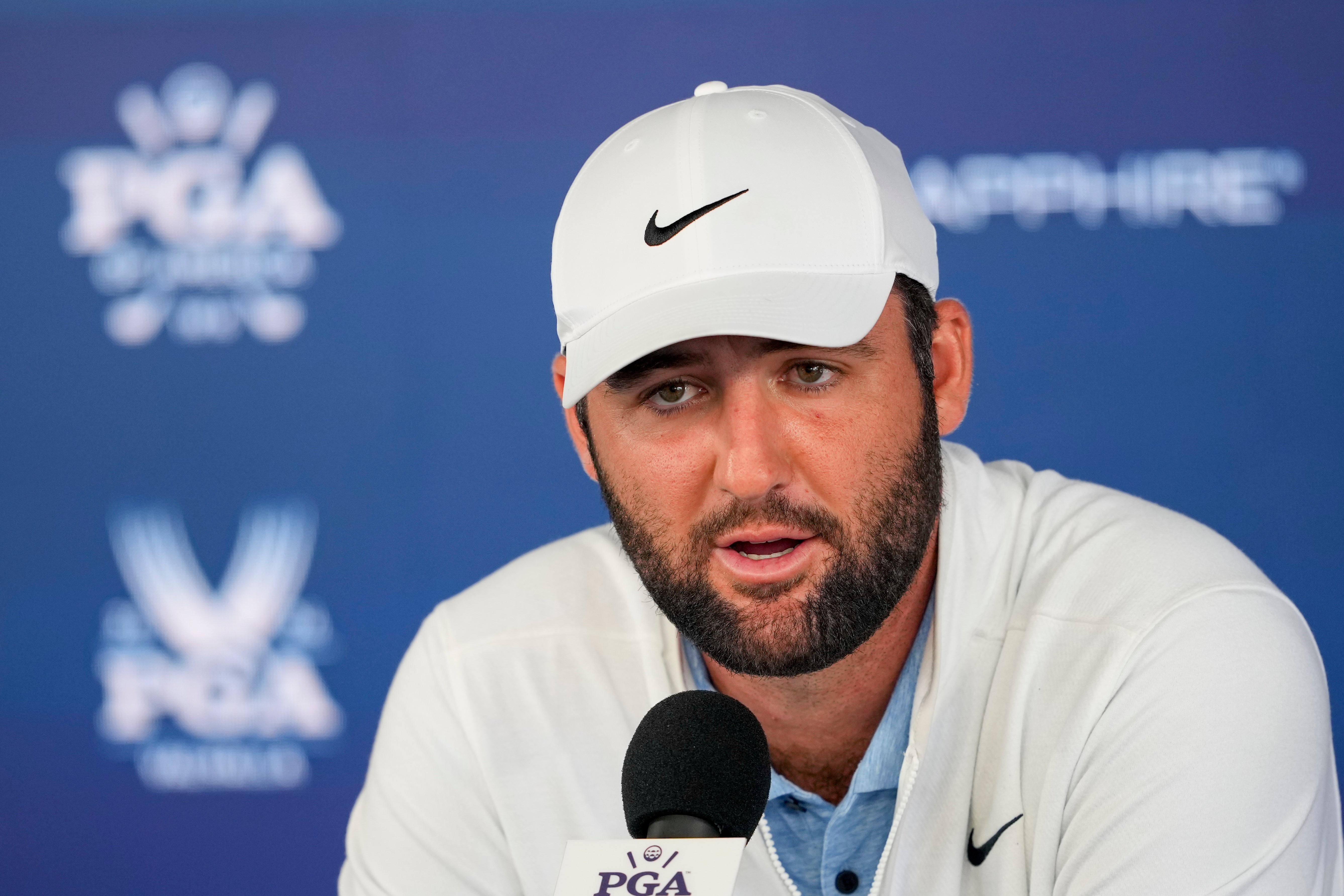Officer who arrested Scottie Scheffler is being disciplined for not having bodycam activated
Authorities say The Kentucky police officer who arrested top-ranked golfer Scottie Scheffler outside the PGA Championship is receiving “corrective action” for failing to have his body-worn camera activated when he approached the golfer’s vehicle and was allegedly dragged to the ground

The Kentucky police officer who arrested top-ranked golfer Scottie Scheffler outside the PGA Championship is receiving “corrective action” for failing to have his body-worn camera activated when he approached the golfer's vehicle — an interaction that police said resulted in the officer being dragged to the ground, authorities said Thursday.
Louisville officials said during a news conference that they do not have video footage of the initial interaction Friday morning between Scheffler and Louisville Detective Bryan Gillis outside the gates of Valhalla Golf Club as the venue hosted the major.
The golfer was arrested on charges that he injured Gillis and disobeyed commands, but Scheffler said “he never intended to disregard any of the instructions,” and the incident was caused by a misunderstanding.
“Detective Gillis should have turned on his body-worn camera but did not," Police Chief Jacquelyn Gwinn-Villaroel said. "His failure to do so is a violation of LMPD policy on uniforms and equipment.”
Gwinn-Villaroel did not elaborate on what “corrective action” has been taken against Gillis for violating the policy.
Police also said they are releasing a video of the events leading up to Scheffler’s arrest, taken by a street camera outside the golf course. Louisville officials have said it is the only video they have of the encounter.
Scheffler was driving before dawn to Valhalla Golf Club to play in the second round of the tournament Friday when he was arrested and hauled to jail. Officers at the scene were investigating the death of a tournament worker who was fatally struck by a shuttle bus outside the gates shortly before Scheffler arrived.
Gillis, who approached Scheffler’s car on foot, wrote in an arrest report that Scheffler “refused to comply and accelerated forward, dragging” Gillis to the ground. Gillis said his uniform pants were damaged in the fall and he was taken to the hospital for his injuries.
Scheffler said “he never intended to disregard any of the instructions,” and the incident was caused by a misunderstanding.
A few hours later, after a trip to jail, Scheffler returned to the golf course in time for his 10:08 a.m. tee time. He finished the tournament Sunday tied for eighth place, enough for a tournament payout of about $520,000.
He is scheduled to return to Louisville on June 3 to be arraigned on four charges, including second-degree felony assault of a police officer.
Louisville police’s current body camera policy was enacted amid controversy in 2020 after officers shot Breonna Taylor, a 26-year-old Black woman who was killed during a botched drug raid. At the time, the plain-clothes officers who served the warrant and fired at Taylor were not required to wear body cameras.
The new policy required all officers to turn on the camera “prior to engaging in all law enforcement activities and encounters.”
The police chief at the time of Taylor’s death was later fired when officers at the scene of another fatal shooting failed to turn on their body-worn cameras.
Bookmark popover
Removed from bookmarks